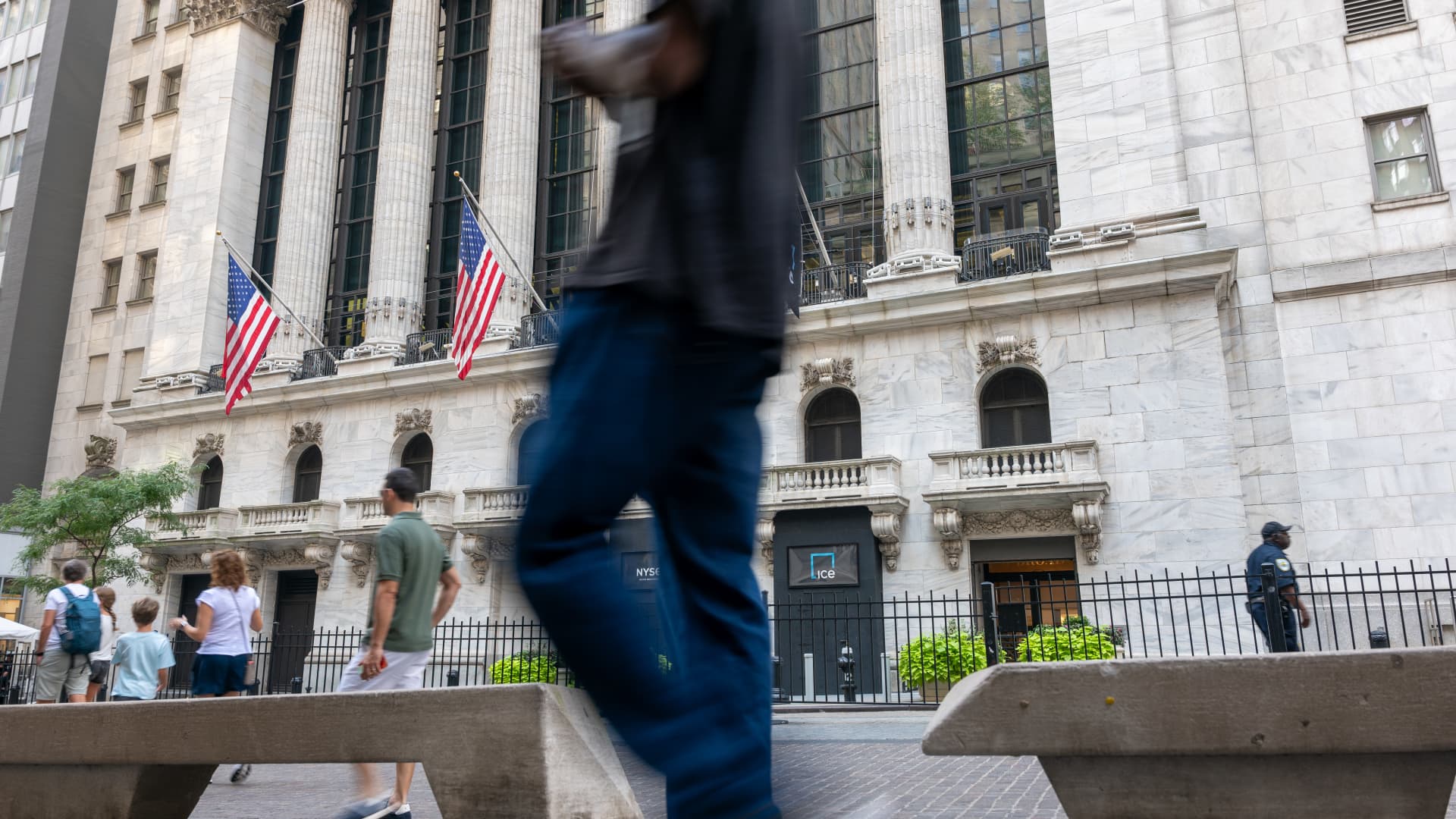People walk outside of the New York Stock Exchange (NYSE) on September 05, 2023 in New York City.
Spencer Platt | Getty Images News | Getty Images
This report is from today’s CNBC Daily Open, our new, international markets newsletter. CNBC Daily Open brings investors up to speed on everything they need to know, no matter where they are. Like what you see? You can subscribe here.
What you need to know today
Cash is still king
Famed investor Ray Dalio advised traders to hold cash as yields on U.S. Treasurys climb to their highest levels in decades and interest rates on money market funds hit north of 5%. The founder of Bridgewater Associates also had a word of caution for investors: The biggest mistake most make is “believing that markets that performed well are good investments, rather than more expensive.”
Remove from cart
Sequoia Capital and Andreessen Horowitz, two of Silicon Valley’s most prominent venture firms, are looking at a massive hit on their 2021 investment in Instacart. At that time, Instacart sold shares at $125 apiece, giving it a valuation of $39 billion. By contrast, in its latest initial public offering update, Instacart’s pricing its shares at $28 to $30 for a valuation of around $10 billion.
Selling to send a message
Disney CEO Bob Iger told CNBC in July he’s thinking of selling the company’s media assets, like broadcast channel ABC and cable channel ESPN. But selling off those assets isn’t about raising money to boost the company’s cash holdings. Instead, it’s a signal to investors: The era of traditional TV is over. Disney is ready for its next chapter.
[PRO] FOMC meeting this week
The Federal Reserve’s meeting on Wednesday will be the main event to keep an eye on for this week. Markets are betting the Fed will hold rates steady for now, but the trajectory of rates in November is still up in the air. FedEx will announce its fiscal first-quarter earnings on the same day, giving an insight into how the global supply chain’s holding up.
The bottom line
U.S. consumer sentiment, according to the University of Michigan Surveys of Consumers, edged down from 69.5 in August to 67.7 in September, more than economists had expected. To put that reading in perspective, the all-time low of 50 was in June 2022 (when annual inflation hit 9.1%), and the historical average is 86.
In other words, consumer sentiment’s improving, but still not great.
On the bright side, consumers now expect inflation to drop to 3.1% in a year, the lowest figure since January 2021.
But if you want to be pessimistic about it, those two data points — lack of confidence about the economy but hopeful about inflation falling — suggest that consumers think inflation will drop in a year because things won’t be great for the economy. That is, the scary R-word will arrive eventually, depressing prices.
The mood on Wall Street, however, is markedly different. “Investors remained upbeat about the outlook for stocks and the economy in August,” according to a Vanguard Investor Expectations Survey. They expected stocks to return 5.5% over the next 12 months and thought there’s only a 5.4% chance of an “economic disaster” in the coming 12 months.
Indeed, corporate earnings could see a rebound in the fourth quarter this year, Edward Jones senior investment strategist Mona Mahajan told CNBC’s “Squawk on the Street.” The rebound in earnings could even hit double-digits in 2024, Mahajan added.
Does Wall Street know something that ordinary U.S. consumers don’t? Or are consumers just more realistic than investors, who are still relishing the unexpected rally in stocks this year? (Investors who are luxuriating in the rally may want to heed Ray Dalio’s warning that “markets that performed well are [not] good investments, [but] more expensive.”)
Whatever the case, that exuberance didn’t show up for stocks last week. On Friday, the S&P 500 dropped 1.22%, the Dow Jones Industrial Average lost 0.83% and the Nasdaq Composite sank 1.56%.
The Dow, with its 0.12% weekly increase, was the only index to finish in the green. The S&P and Nasdaq were 0.16% and 0.39% lower for the week, respectively.
“I think having digested the additional economic data that’s come out, as well as ongoing geopolitical pressures and other developments, we’re seeing today investors pulling back and taking a breather,” AXS Investments’ Greg Bassuk said.
With the Fed expected to keep interest rates unchanged at its September meeting on Wednesday, investors may take an extended breather this week. In that open space between breaths, equilibrium between Wall Street and main street may be reached.

